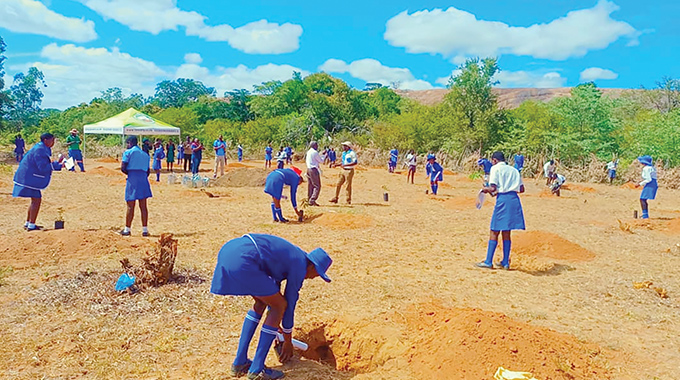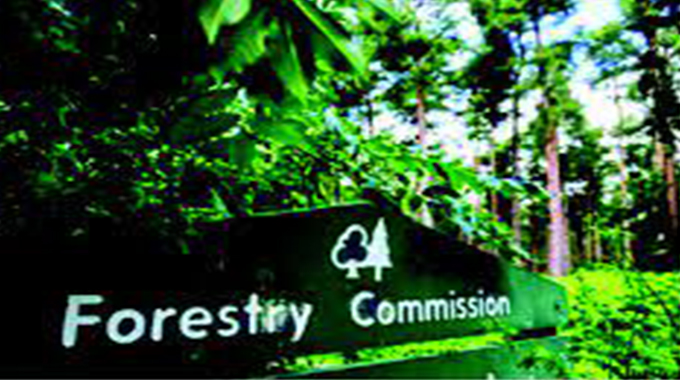Play an active role in tree planting, learners urged

Sukulwenkosi Dube-Matutu, [email protected]
GWANDA District commemorated this year’s International Day of Forests at Nyandeni Secondary School, with stakeholders urging pupils to play an active role in planting trees.
The event was held last week and organised by the Forestry Commission in partnership with Nyaradzo Group and Brethren in Christ Church, under its Locally Led Indigenous Nature Based Solutions for Climate Change Adaptation in Zimbabwe programme.
During the event, an orchard was established at Nyandeni Secondary School. A total of 100 fruit trees were planted in the orchard and 30 in the school grounds.
The event is part of the renewed reforestation programme targeting schools, agroforestry and restoration of degraded lands within the district. The Ministry of Environment, Climate and Wildlife through the Forestry Commission is targeting to establish orchards in all schools across the country.
This year’s International Forest Day was held under the theme “Forest and Innovation for a better future”.
The day is commemorated on March 21.
Speaking during the event Forestry Commission’s Gwanda District extension officer, Mr Fortunes Felix Matutu said pupils have a critical role to play in terms of coming up with solutions, which can help preserve and restore forests.
“Climate change and biodiversity loss are among the challenges that the forestry sector has to grapple with.
“This means that innovation is very critical for the future of forests as the sector seeks to advance solutions to these and other problems in this sector,” he said.
“Innovation for the forestry sector means implementing new ideas and creating new value for stakeholders.
“We need to continue enhancing the value of our forests through collaboration for the benefit of local communities.”

Mr Matutu said pupils were key stakeholders in developing innovative solutions.
“Maintaining forests and seeking new ways of restoring trees should be part of your regular activities. You are the future generation and once you grasp this concept then our environment will be in good hands,” he said.
Mr Matutu said the tree planting programme in schools seeks to inculcate a culture of protecting forests among learners. He said fruit trees are the main target as they will help schools realise income and promote nutrition among learners.
Mr Matutu said the pupils will see the benefits of having the trees once they bear fruits.
In an interview, Forestry Commission’s Matabeleland South provincial manager, Mr Bekezela Tshuma urged communities to grow fruit trees to cope with shocks from climatic change effects such as drought.
He said fruit trees are in high demand because of their nutritive value.
Mr Tshuma said villagers have seen the value of growing fruit trees.
He said they have managed to establish orchards in various schools and also developed agro-forestry projects in gardens.
“We are saying that communities have to adopt growing fruits because of their great benefits. Communities can grow fruit trees in their homes, in their community gardens and in schools,” he said.
“We appreciate the work being done by our development partners, who have come in to assist schools in developing orchards and communities to develop orchards in their gardens,” he said.
The country is losing 262 349 hectares of forest land to deforestation each year. Deforestation and subsequent land degradation are a threat to millions of people in Zimbabwe and around the world, as it affects livelihoods and food security.
The major drivers of deforestation are clearing land for agriculture, settlement expansion, wood energy, mining activities and veld fires among others. — @DubeMatutu










Comments